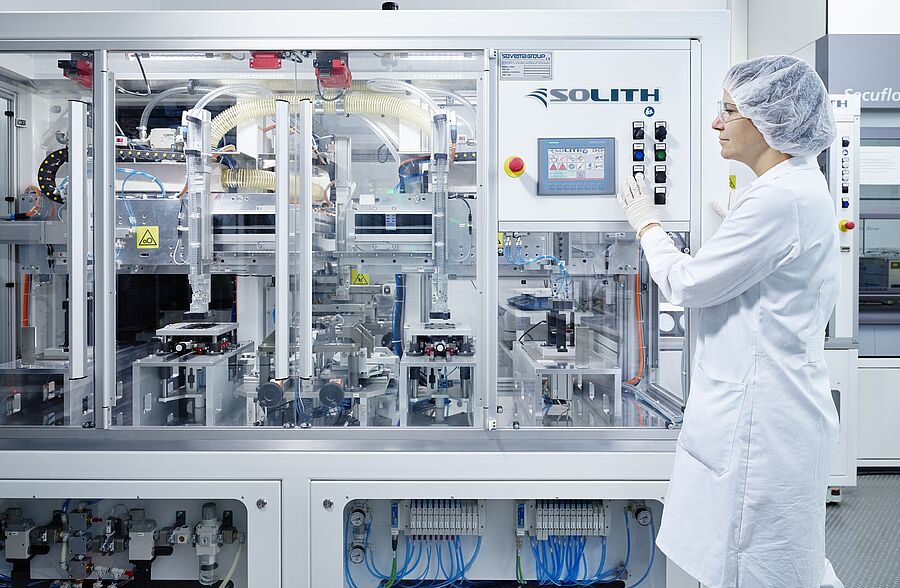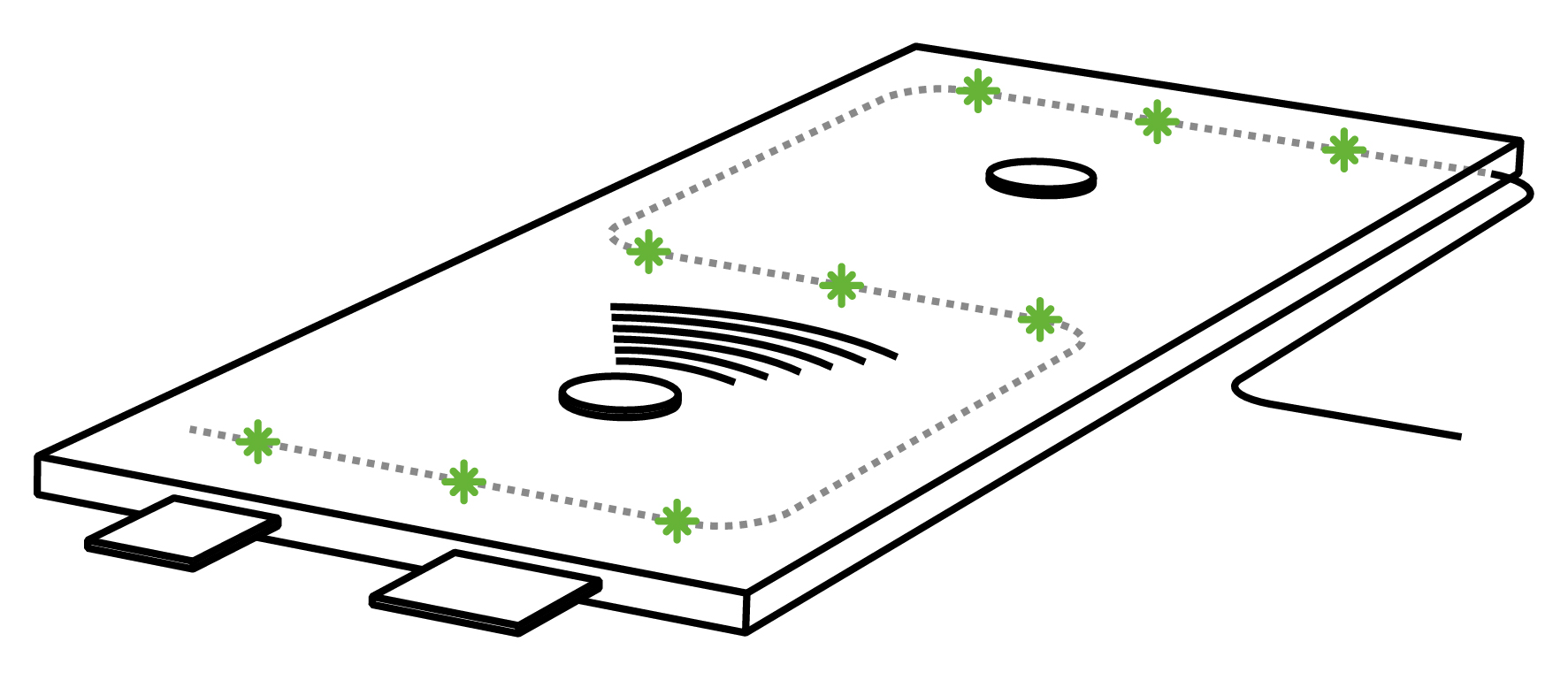Multiphysical sensor technology for optimizing the operation of lithium-ion batteries
(c) TU Graz/EMS
The aim of the MOGLI project is to further develop the method of ultrasound diagnostics for lithium-ion accumulators, which has already been tested in the laboratory (TRL3), into a practical application (TRL5). This should enable fast and low-cost determination of the condition of battery systems in the vehicle even during operation, generating data for the battery management to increase the accuracy of estimating the state of charge and ageing (SOC and SOH) and to detect mechanical damage more quickly. To this end, battery-sensor interactions are simulated to define boundary conditions, prototypes are measured within those, and then both the ultrasonic sensors and structures and the electronics are optimized. In addition, the internal processes in the cell and their effect on ultrasound diagnostics will be understood, and alternative sensor systems will be tested. For this purpose, optical fibers are inserted into the cell in order to directly measure strain, temperature, and degree of lithiation in the materials. Electromagnetic transducers are also used to excite the cells from the inside instead of on the surface, thus providing a baseline for comparison. These data are then correlated with the ultrasound diagnostics. Finally, the technology is comprehensively evaluated in a (partial) battery module under conditions similar to those found in vehicles.
Funded by the Federal Ministry for Climate Protection, Environment, Energy, Mobility, Innovation and Technology (BMK) and the Austrian Research Promotion Agency (FFG) as part of Mobility of the Future, MdZ - 14th call (2019) Battery.
Project duration: 01.09.2020 to 31.08.2023




